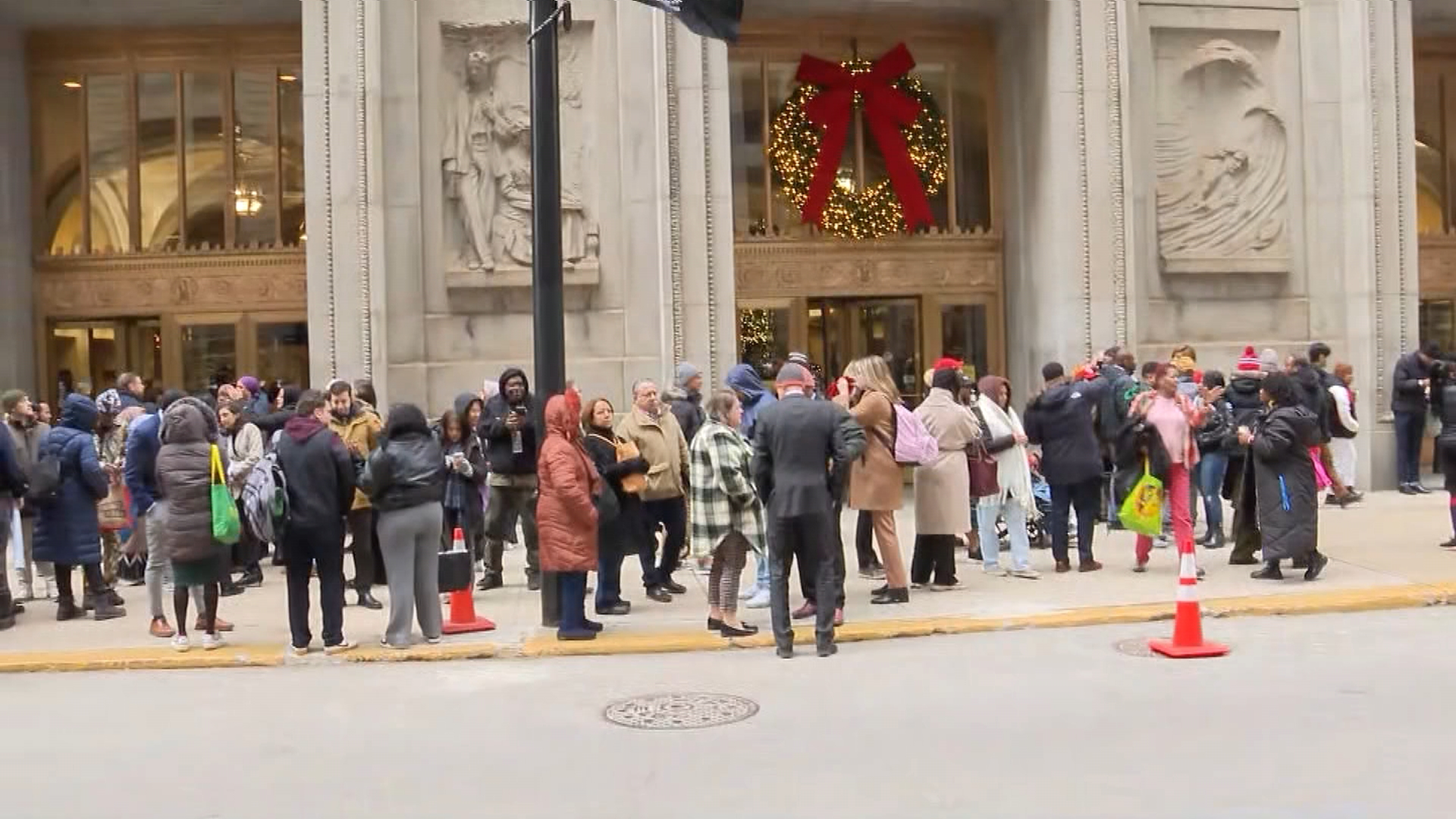WARNING: This story may be disturbing to some readers.
Richard Allen confronted Abigail Williams and Liberty German with a gun before killing the teenage girls on an unseasonably warm day in February 2017 along a hiking trail in Delphi, Indiana, prosecutors said Friday.
During opening arguments in the Delphi murders trial, Carroll County Prosecutor Nick McLeland said the state's case centers on the man on the Monon High bridge, an unspent bullet found at the scene and the murders of Abby and Libby.
McLeland claimed Allen came across teenage best friends, Libby, 14, and Abby, 13, then used "power and the fear" to force them "down the hill" before slitting their throats. After the girls crossed a bridge, the prosecutor said they saw a man behind them, so Libby started a recording on her phone at 2:13 p.m.
Derrick German, Libby's father, went to pick up the girls that afternoon, but they were not there, he said.
When the girls' bodies were found the next day after they were reported missing, Libby, 14, was naked and covered in blood, while Abby, 13, was clothed in Libby's sweatshirt and jeans, with other clothing dumped in a creek, the prosecutor told jurors.
For years - Allen hid in plain sign, prosecutors said.
Local
"The last face the girls saw before their throats were slit was Richard Allen's face," McLeland said.
In opening arguments, defense attorney Andrew Baldwin said the state's case was built on a faulty timeline and evidence that didn't match up. He highlighted witness statements and forensic evidence that cast doubt on the state's case.
Feeling out of the loop? We'll catch you up on the Chicago news you need to know. Sign up for the weekly> Chicago Catch-Up newsletter.
Baldwin insisted the state's investigation was "messed up from the beginning" and accused the state of losing "interview after interview we will never see."
"We want the truth to come out in this courtroom for the families," he stated.
Baldwin told jurors the prosecution's case "is going to fall apart before your very eyes" when they see the phone data evidence.
The defense also tried to discredit the prosecution's claim that the bullet found near the girls' bodies belonged to Allen. Baldwin said that law enforcement commonly uses the type of bullet found at the crime scene, but police never investigated if an officer was missing a .40 bullet. He also said that the owner of the property where the girls were found owns a .40 weapon, but his gun was never tested to see if it matched the bullet found.
Baldwin said an expert will testify the "markings were insufficient" on the lab's test bullet to match Allen's gun to the bullet at the crime scene.
Baldwin also stated the state's timeline doesn't match when Allen was on the trails. He called out two witnesses who described seeing a man who looks nothing like Allen in the area. Baldwin said that if the timeline and witness accounts don't match the prosecution's, then the case is "blown apart."
Baldwin said Allen told his family, "Maybe I just confess to all this so you guys don't have to suffer."
Partial testimony provided by witnesses during day one of the trial can be found below:
State's 2nd witness: Kelsi Siebert, Libby's older sister
On the morning of the murders, Kelsi said Libby "asked me to go to High Bridge. She wanted me to go with her."
Kelsi said that sometime after 4 p.m. her grandma called to say that Libby was missing. Kelsi and her boyfriend tried to reach Libby, WTHR reported.
The family met up and walked the high bridge. Prosecutors had Kelsi show her route on a satellite map. She crossed down the left side of the trail. They went north off of the bridge where there was a hill to go down then went west to where there is a gate.
Kelsi said there was a tree with shoes on it along the route, but that wasn't concerning. "Lots of kids" put their shoes on the tree, according to Kelsi.
"Did you think something bad happened?" deputy prosecutor Stacey Diener asked.
"No, we thought they were out in the woods somewhere," Kelsi said.
Kelsi said she would text with Libby some, but they mostly talked through ShapChat.
"She would have sent a picture with words on it," Kelsi said. "If you didn't save it, it would disappear in a couple hours."
Kelsi remembered Libby posted a picture of the bridge and then a picture of Abby on the bridge.
Kelsi did not go back to the trail after the initial pass with her family, but said, "I was texting and calling her."
When they did go back, Kelsi said, "We were divided into groups. My group crossed the High Bridge. We went down and to the right. We were searching under bridge."
Kelsi became emotional on the stand when she said "not long after there was someone that yelled they had found the girls."
State's 1st witness: Becky Patty, Libby German's grandmother
According to Becky Patty, the girls did not have school Feb. 13, 2017, because it was a scheduled snow makeup day that wasn't needed.
Becky said Abby stayed at their house the night before the murders – and Derrick, Libby's father, made them breakfast that next morning.
Becky said the last thing she said to Libby was to wear a jacket, which Libby responded, "Grandma, I'll be OK." Becky wiped away tears as she recounted this.
Becky said Derrick called her around 3:30 p.m. because the girls weren't at the pickup spot, and Libby wasn't answering her cellphone. She also said Abby didn't have a cellphone.
Becky then called her husband, Mike, to say she was worried and wanted to go search the trails for the girls. Becky said she also called AT&T to see if they could ping Libby's cellphone.
Around 5 p.m., Becky told Mike to call police because it was starting to get dark. Becky said she then called Anna Williams, Abby's mom, to tell her the girls were missing.
"We called. We kept calling and calling," Becky said as tears were in her eyes.



